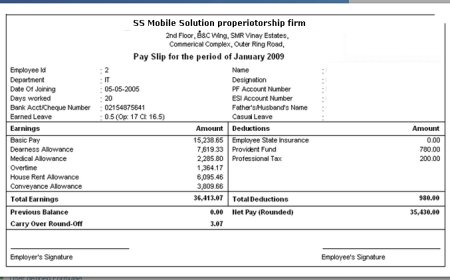Healthcare Digital Marketing: Transforming Patient Engagement in the Digital Age

In todays fast-paced digital world, every industry is evolving, and healthcare is no exception. As more patients turn to the internet for medical information and healthcare providers, the role of Healthcare Digital Marketing has become increasingly significant. From hospitals and clinics to medical practitioners and pharmaceutical companies, digital marketing has transformed how healthcare services are promoted, delivered, and perceived.
This comprehensive guide explores the importance of healthcare digital marketing, key strategies, benefits, challenges, and how medical organizations can leverage digital tools to grow their reach and improve patient care.
What is Healthcare Digital Marketing?
Healthcare Digital Marketing refers to the use of digital channels, platforms, and strategies to promote healthcare services, connect with patients, and enhance brand awareness. Unlike traditional marketing methods such as print ads or billboards, digital marketing focuses on reaching people through:
-
Websites
-
Search engines
-
Social media
-
Email campaigns
-
Online advertisements
The goal is to attract, engage, and retain patients while providing valuable health-related information and services.
Why is Digital Marketing Essential in Healthcare?
-
Changing Patient Behavior:
Todays patients are proactive. They search for doctors, hospitals, treatments, and health tips online before making decisions. A strong digital presence ensures youre visible when and where patients are searching. -
Increased Competition:
With numerous healthcare providers available, digital marketing helps set one organization apart from another. -
Cost-Effective Outreach:
Compared to traditional advertising, online marketing often delivers better results at a fraction of the cost. -
Better Patient Engagement:
Digital platforms allow real-time interaction, personalized messaging, and timely healthcare updates, enhancing patient trust and loyalty.
Key Healthcare Digital Marketing Strategies
To succeed in the competitive healthcare landscape, organizations must use the right mix of digital marketing strategies:
1. Search Engine Optimization (SEO)
SEO helps healthcare websites rank higher on Google and other search engines when patients search for services like dentist near me or best cardiologist in [city]. Effective healthcare SEO involves:
-
Keyword research
-
Optimizing website content
-
Mobile-friendly design
-
Fast-loading pages
-
Local SEO for clinics and hospitals
2. Content Marketing
Quality content builds trust and educates patients. Examples include:
-
Blog posts on health tips or medical procedures
-
FAQs on treatments
-
Infographics and videos explaining conditions or therapies
Educational content positions healthcare providers as industry leaders while improving search engine visibility.
3. Pay-Per-Click Advertising (PPC)
Running targeted ads on Google or social media platforms helps reach potential patients instantly. For example, a plastic surgery clinic might use PPC to promote a specific procedure.
4. Social Media Marketing
Social media platforms like Facebook, Instagram, LinkedIn, and Twitter are excellent tools for:
-
Sharing health tips
-
Promoting services
-
Engaging with patients
-
Managing the clinics reputation
Visual content like patient testimonials, behind-the-scenes videos, and awareness campaigns work particularly well on social media.
5. Email Marketing
Email newsletters are effective for:
-
Patient retention
-
Announcing new services
-
Sending appointment reminders
-
Sharing health updates
Automated emails can also nurture relationships with patients who havent yet booked a service.
6. Online Reputation Management (ORM)
Online reviews play a critical role in healthcare decisions. Positive patient reviews on Google, Facebook, and healthcare directories build trust. Managing negative reviews professionally is equally important.
7. Telemedicine Promotion
The rise of telehealth services has made it essential to promote virtual consultations through digital channels.
Benefits of Healthcare Digital Marketing
Implementing an effective digital marketing strategy offers numerous benefits for healthcare providers:
-
Increased Online Visibility:
Patients can easily find services online. -
Attracting New Patients:
Targeted ads and local SEO bring in more appointments. -
Improved Patient Education:
Through blogs and videos, patients stay informed about their health. -
Cost Efficiency:
Digital marketing often provides better ROI than traditional advertising. -
Enhanced Communication:
Two-way interaction on social media or through emails creates stronger relationships. -
Data-Driven Insights:
Digital tools provide real-time analytics to refine marketing strategies based on actual performance.
Challenges in Healthcare Digital Marketing
Despite its many advantages, healthcare digital marketing faces unique challenges:
-
Regulatory Compliance:
Healthcare organizations must comply with regulations like HIPAA (in the US) and other privacy laws when handling patient information online. -
Patient Sensitivity:
Healthcare marketing must balance promotional content with sensitivity to patients emotions and well-being. -
Misinformation:
Combating health-related myths and ensuring accurate content is essential for maintaining credibility. -
Competition:
As more providers invest in digital marketing, standing out becomes increasingly challenging.
Measuring Success in Healthcare Digital Marketing
Success in digital marketing is measurable through key performance indicators (KPIs), including:
-
Website traffic
-
Conversion rates (appointment bookings)
-
Social media engagement
-
Online reviews and ratings
-
Email open and click-through rates
-
Return on investment (ROI)
Using tools like Google Analytics, Facebook Insights, and CRM systems helps healthcare organizations track and improve their marketing effectiveness.
The Role of Digital Marketing Agencies in Healthcare
Many healthcare providers partner with specialized digital marketing agencies to manage their online presence. An experienced agency understands:
-
Healthcare regulations
-
Medical terminology
-
Audience targeting
-
SEO for healthcare
They can help craft tailored strategies that align with the organization's goals while ensuring compliance.
Future Trends in Healthcare Digital Marketing
The future of Healthcare Digital Marketing is dynamic and will be shaped by several trends:
-
Artificial Intelligence (AI): AI-driven chatbots, personalized marketing, and predictive analytics will enhance patient experiences.
-
Voice Search Optimization: With the rise of smart speakers, optimizing content for voice search will become essential.
-
Video Marketing: Short health tips, patient testimonials, and procedure explanations in video format will dominate content strategies.
-
Virtual Reality (VR) and Augmented Reality (AR): These technologies could be used for patient education and even virtual facility tours.
Healthcare providers who adapt to these trends will stay ahead in attracting and retaining patients.
Conclusion
Healthcare Digital Marketing has become an indispensable tool in the modern medical landscape. It enables healthcare providers to reach patients more effectively, build trust, and deliver valuable health information, all while remaining cost-effective.
By implementing the right digital strategiessuch as SEO, content marketing, social media engagement, and online reputation managementhealthcare organizations can enhance patient experiences, grow their practices, and contribute positively to public health awareness.
The digital age has changed the way healthcare operates, and those who embrace this transformation will lead the way in patient care and business success.










































